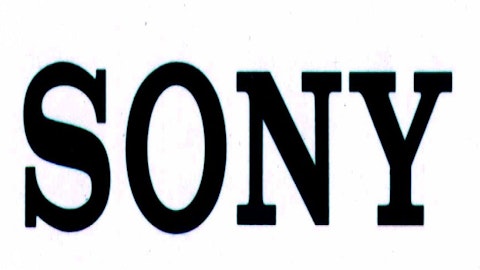A shrinking market
Sony and Nintendo refuse to see tablets and smartphones as real competition for eyeballs. Sony’s gamer-first approach to this next generation of consoles will likely attract the most console gamers, but that crowd is shrinking – in all likelihood due to the introduction of smartphones and tablets.
The last E3 conference with new console announcements was in 2005. E3 drew a record 70,000 attendees. In 2001, with the announcement of the Xbox and Gamecube, 62,000 people attended the conference. This year, just 48,000 showed up. A lot of gamers seem to have lost their enthusiasm, myself included. (But I’m sure those that haven’t will let me hear it in the comments section). Sure, there are some details that may have led to lower attendance, but the level of enthusiasm around new consoles is not quite what it used to be.
There’s also the recent trend in video game sales, but that’s not without its flaws. Console and game sales usually decline significantly before a new console cycle. Yet, this time around, the decline appears much more pronounced. Total sales are still above where they were in 2006 at the beginning of the last console cycle, but the fall from its high in 2008 has been much more precipitous compared to the lull from 2003 to 2005.
So even if Sony captures the majority of the market, as DFC analyst Jeremy Miller expects, the market appears to be in decline.
This is why Microsoft Corporation (NASDAQ:MSFT) has shifted the focus of the Xbox from a gaming console to an entertainment system. It successfully transformed the previous generation Xbox 360 from a Halo machine to a centerpiece in more than 70 million living rooms with its motion and voice sensor Kinect and a marketing shift. As a result, Microsoft started selling more consoles in the second half of the products life-cycle. In 2012, the company’s Xbox division increased revenue by 60%.
The real coup by Microsoft Corporation (NASDAQ:MSFT) is expanding its Xbox Live platform, which for a subscription fee allows users to access Internet services through their device. Xbox Live will play a crucial role in the upcoming Xbox One, which relies heavily on the cloud. This means Microsoft Corporation (NASDAQ:MSFT) is less reliant on game sales, as it has a subscription revenue stream in Xbox Live. So even if console game sales don’t reach the peaks they did in 2008, Microsoft is better positioned than Sony or Nintendo.
Mobile monster
For now, Sony and Nintendo are choosing to ignore iOS and Android at their own risk. Nintendo has the most at risk with its stakes in casual and portable gaming and a floundering set-top console. It’s not even close to the diversification of Sony. If the company continues to struggle, it may go the way of Sega.
Sony is going after the market of hardcore gamers that appears to be diminishing. Meanwhile, Microsoft is expanding its console into an all-in-one entertainment solution. Tablets and smartphones are at least part to blame for the rapid decline in video game sales. I believe they will continue to hold back the next generation of consoles as well.
The article Little Games, Big Impact originally appeared on Fool.com and is written by Adam Levy.
Adam Levy has no position in any stocks mentioned. The Motley Fool recommends Nintendo. Adam is a member of The Motley Fool Blog Network — entries represent the personal opinion of the blogger and are not formally edited.
Copyright © 1995 – 2013 The Motley Fool, LLC. All rights reserved. The Motley Fool has a disclosure policy.



